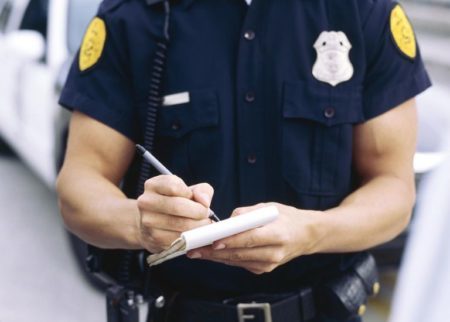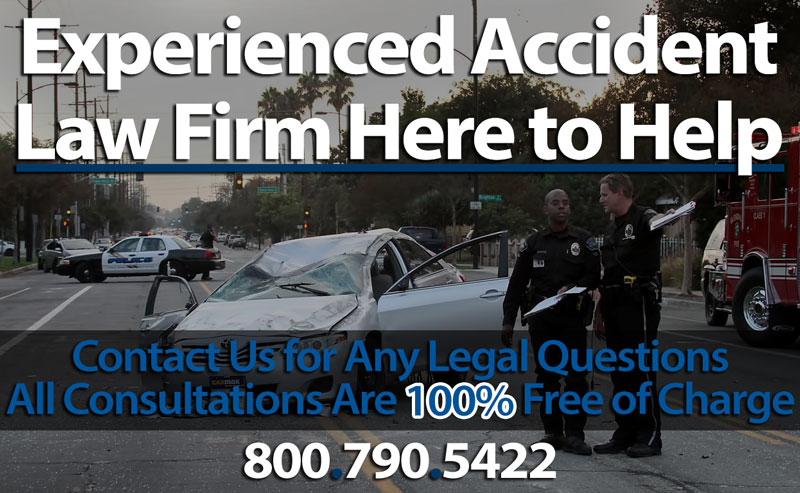Qualified Attorney to Help You Handle an Inaccurate Police Report
 Police reports are essential to documenting incident details. Not all accidents warrant a police report; police will not respond to a scene unless there is significant damage. A police report is simply the physical record of an incident. Reports are completed by the officers that respond to the scene and become available to the parties involved in the incident in roughly ten days. You might need a police report for many reasons—for example, to make an insurance claim. Besides general information about the incident, police reports contain an assessment of fault. That is, based on the scene, the police officer completing the report places fault on an involved party. In the case that you are using the police report to submit an insurance claim, you could see that the report must be correct to ensure the insurance claim is appropriate.
Police reports are essential to documenting incident details. Not all accidents warrant a police report; police will not respond to a scene unless there is significant damage. A police report is simply the physical record of an incident. Reports are completed by the officers that respond to the scene and become available to the parties involved in the incident in roughly ten days. You might need a police report for many reasons—for example, to make an insurance claim. Besides general information about the incident, police reports contain an assessment of fault. That is, based on the scene, the police officer completing the report places fault on an involved party. In the case that you are using the police report to submit an insurance claim, you could see that the report must be correct to ensure the insurance claim is appropriate.
Often, police officers begin creating the report hours after the incident has occurred. This happens after the officer has performed other priorities. These other priorities include assessing and supporting injured victims, controlling and coordinating traffic at the scene of the incident, and speaking with medical personnel, other law enforcement, and the victims. After doing everything mentioned above, the officer will begin taking steps to complete a report. This includes preserving and collecting evidence, taking measurements of the area, and getting statements from witnesses. By the time the officer gets to the report, it is possible that evidence has been disturbed and witnesses have left the scene. In some cases, eyewitnesses that could offer solid details of the accident and only people that have heard details from perhaps unreliable sources linger in the scene. If witness accounts come from unreliable sources, the police report can conclude incorrectly.
If you were involved in an accident—a vehicular accident, a bicycle accident, a pedestrian accident, a motorcycle accident, or a truck accident—you might need to request a copy of the police report. Requesting a police report can be a long and tedious process, as all police and sheriff’s departments have different requesting methods that are often unclear. Let us consider the following situation. You go through the process of requesting a police report for a car accident, you pay the required fees, and you wait the time it takes to process. When you receive the report, you notice that the report is not accurate. The report falsely states that you disregarded traffic signals and caused the accident. You have submitted a report of the accident to the Department of Motor Vehicles (DMV), and you know that, upon investigation of the accident, the DMV will have access to the police report. You believe that this false information on the police report can cause the DMV to suspend your license. What can you do?
If you are in a similar situation you might be asking yourself the following questions:
- What if the police report is incorrect?
- What do I do if the police report is not accurate?
- Can I make changes to a police report?
- Do I need a lawyer if the police report is wrong?
If the accident report is not right, there are ways to make changes to it. There are a few steps you can take independently if the police report has mistakes. If the police department that processed your accident report refuses to make changes, an attorney can help you challenge the report in court. In the following sections, you will find information on what to do if the police report is wrong and what to do if you got into an accident and the police mistook important details in the report.
Type of Errors in Police Reports
Unfortunately, police officers can make mistakes while they are completing their reports. Police officers can make mistakes of fact, mistakes of judgment, and mistakes of law. The following is a brief description of each kind of mistake:
- Mistake of Fact—mistakes of fact include everything from spelling errors, miswritten numbers, wrong makes and models of the cars involved, and confusion about specific details.
- Mistake of Judgment—mistakes of judgment include reports that conclude with placing the wrong person at fault or witness accounts that a traffic signal was violated.
- Mistake of Law—mistakes of law include, for example, being pulled over and cited for having only one properly-working tail light when the law does not specify that there must be two lights.
Only mistakes of fact and mistakes of judgment apply to traffic accident reports. The following section will further discuss the relevant errors and how to approach a police department with a request to correct the mistakes.
How to Change a Police Report
If there is a mistake in your police report, you do not have to accept the mistake and consider it correct. Although there is not a specific process to request a change to be made to a report, you can contact the appropriate police department with concerns.
As previously mentioned, mistakes of facts include simple mistakes like spelling errors, miswritten numbers, wrong makes and models of involved cars, and confusion about specific details like names of the owners of any damaged property. This type of mistake is considerably simple to correct. You must prove that the information on the police report is incorrect. For example, if the officer misspelled your name, your proof would be a valid identification card. If the officer got the make and model of your car wrong, you could provide a copy of your vehicle’s registration card to prove that the report is wrong. If the accident damaged your property but you not listed as the property owner, you can also provide proof of ownership of the damaged property. In essence, since these mistakes are usually clear, any proof you submit will be enough to change the report.
Mistakes of judgments are not as easy to amend as mistakes of facts. What do you do if the police report is wrong? You can try to request a mistake of judgment to be changed, but it is unlikely that it will happen. For example, if various witnesses claimed you were speeding, but you believe you were not speeding, you will not be able to remove the speeding from the report. Likewise, if the report states you failed to yield to oncoming traffic but are certain that you did yield; it is unlikely that the report will be changed. Why would the police department refuse to change the report? Speeding and failing to yield cannot usually be verified through tangible proof. Unless the vehicle was equipped with a camera that recorded that the driver was not speeding or that the driver did yield to oncoming traffic, the report is unlikely to be amended.
If the police department is unresponsive or refuses to make a change to the police report, you might be concerned about the false police report being used against you in court. Police reports are not admissible as evidence in court. You might be asking yourself: what if the cops are wrong? Only verbal testimonies of police reports can be used in court; however, if the police officer testifying veers from or contradicts the “truth” that is stated in the official police report, his or her testimony will be considered untrustworthy—an untrustworthy testimony can be discounted from the court.
Seeking an Attorney to Challenge the Incorrect Police Report
The false police report might be negatively affecting you. You might incorrectly be found liable for an accident. In the case of insurance claims, or if the other person involves tries to sue you for any injuries, you might be at risk of having to pay a large sum of money. If you have tried everything to directly contact the police department and have the police report corrected to no avail, your last option is to hire an attorney. An attorney will help you collect the evidence necessary to change the report. As previously stated, the police officer who wrote the report can be called to testify. If the police officer contradicts the police report at any time, he or she might be considered untrustworthy. You might be able to present your version of the incident and any evidence that you have collected. For more information on taking legal action to correct a police report, contact Normandie Law Firm.
Normandie Law Firm
Normandie Law Firm is a law firm dedicated to helping clients to exercise their legal rights. Our law firm knows mistakes can happen, and law enforcement agencies are not exceptions to making mistakes. Police accident reports are important in establishing liability; if the police report contains inaccuracies, you might be wrongfully put at fault for the accident. You can inform the appropriate police department of the mistakes, but it is up to their discretion to change errors. If your accident report in inaccurate and the police department is unwilling to make changes, you should contact a lawyer to help you begin challenging the police report.
Normandie Law Firm will do everything possible to ensure that clients have access to exceptional legal assistance. Our law firm provides free consultations and free second opinions. If you disagree with the police report and the police department is not willing to make changes, you need to talk to an attorney. Pick up the phone and schedule an appointment at your earliest convenience. Our attorneys will evaluate your situation and give you legal advice that pertains to your case. Our attorneys will challenge any errors in a police report in court. Our experienced attorneys will help you gather evidence to prove that the police report not correct. During your free consultation, you can expect our attorneys to answer all of your questions and address all of your concerns. Our legal team will do everything possible to ensure that you successfully challenge that incorrect police report. If you already have an attorney at another law firm, you can still contact Normandie Law Firm for a free second opinion. Why would you need a second opinion? If police officers can make mistakes while writing official police reports, attorneys can make mistakes when giving you information. Are you looking for additional information because your attorney missed something? Many lawyers work as fast as possible through their cases to increase their overall numbers. How does that affect you? Unfortunately, an attorney’s rushing directly affects his or her client. An attorney that rushes through a case risks overlooking or neglecting important pieces of information. Additionally, rushing can result in an attorney completely misinterpreting details. Do not risk getting the wrong information or no information at all. Do not allow the incompetence of your current attorney determine the outcome of your case. Contact Normandie Law Firm to meet with a lawyer who will prioritize your case. Our lawyers will review your case multiple times to ensure that they cover all angles.
Normandie Law Firm’s free consultations and free second opinions are both covered under our Zero-Fee guarantee. Our Zero-Fee guarantee ensures that you will never have to worry about paying any upfront fees. Additionally, our law firm is strictly contingency-based, so you will not have to pay anything until our lawyers win your case and the police report is successfully challenged.

OUR ATTORNEYS CAN HELP YOU RECOVER THE COMPENSATION YOU DESERVE
Statute of Limitations for Car Accidents in California
DUI Car Accident Attorney | Injured by a Drunk Driver
Car Accident Brain Injury Attorney











